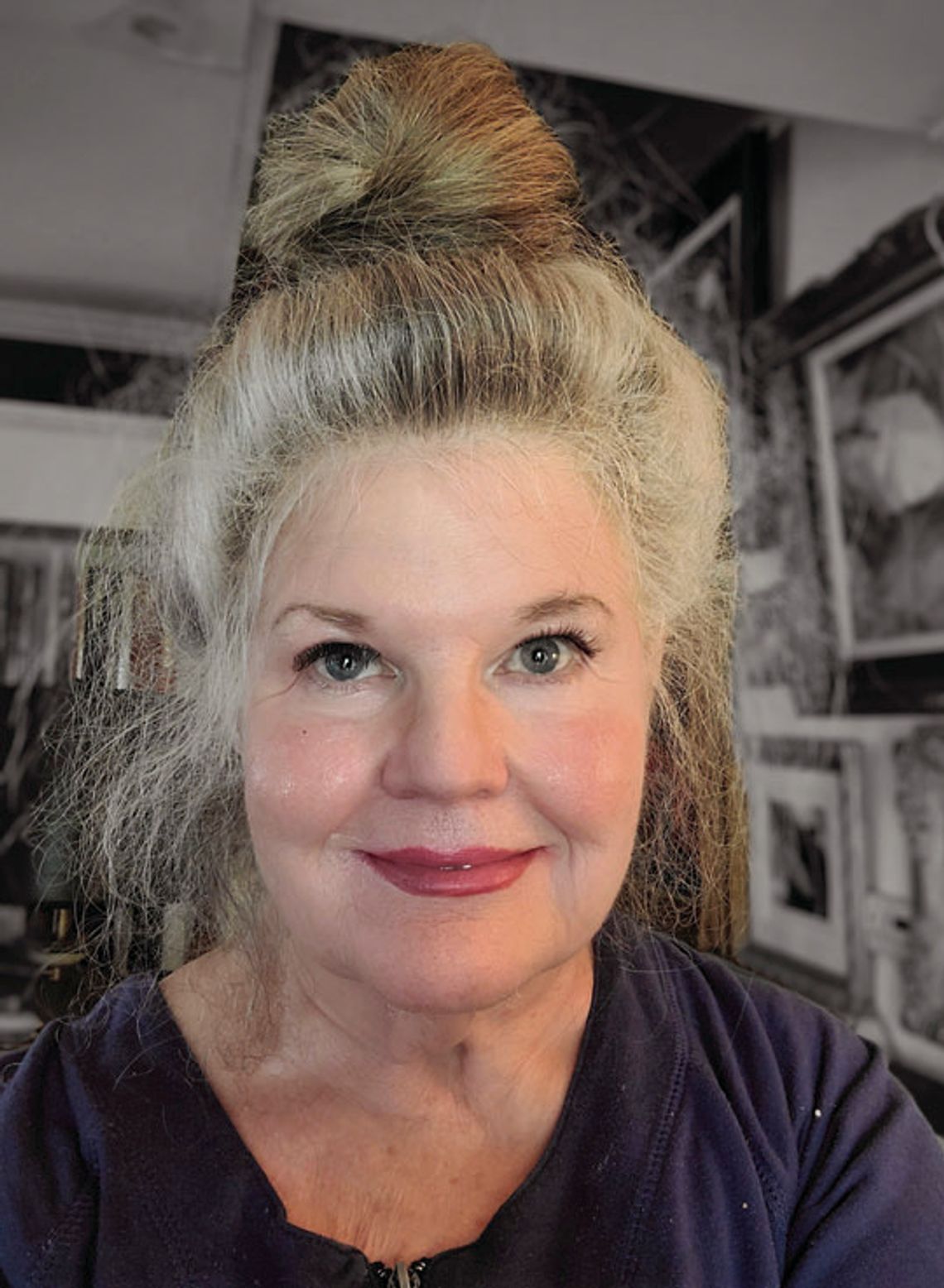HAMPTON, AR, October 08, 2024 /24-7PressRelease/ -- Frankie Wallingsford Sarver has been selected for inclusion in Marquis Who's Who. As in all Marquis Who's Who biographical volumes, individuals profiled are selected on the basis of current reference value. Factors such as position, noteworthy accomplishments, visibility, and prominence in a field are all taken into account during the selection process.
Dr. Sarver, an esteemed expert in public policy, has dedicated more than 50 years to her profession. Most recently, she serves as Chief Executive Officer of Public Policy Evaluation and Development 2000s where she specializes in consulting with major city groups, private citizen organizations, neighborhood task forces, public and private agencies including prevention, intervention and treatment programs and policing including community policing if available or wanted. Her prior years in public service and leadership positions, her graduate education and many years practicing and honing her skills and expertise have enhanced coordination and cooperation among any and all services related to alcohol and other substances of abuse at the city, state and federal levels of policy, funding, evaluation and development. Sarver's abilities and experience have created special and successful public policy recommendations. Her professional monitoring, evaluation, technical assistance and suggestions have impacted multiple cities including The Robert Wood Johnson Foundation's 14 Fighting Back cities from New York City to Oakland, California and 12 other major cities throughout mid America. Dr. Sarver's ability to foster collaboration among diverse stakeholders has been a hallmark of her career.
Prior to her current full-time consultation services, grant writing and providing public policy recommendations to cities, states and federal leaders and institutes, Sarver has filled Statelevel administrative roles. These roles included being appointed by the Governor to be the first woman to head an Arkansas government agency or department. She was appointed by Governor Pryor to be the Executive Director of the Arkansas Agency on Alcoholism and Other Drug Abuse Prevention. The multi-milliondollar agency included treatment, intervention and prevention programs and policies in the Alcoholism and Other Drug Abuse fields. As the first woman to head an agency or department in Arkansas government, her effective leadership was breaking barriers and setting a new precedent for women in Governor appointed leadership positions. In this Arkansas administrative government role, Sarver was reappointed and served under three governors representing the Democrat and Republican parties. One Governor, David Pryor later became a U.S. Senator and another, Bill Clinton, later became President of the United States of America.
During her tenure directing the State Agency, accreditation for alcoholism and other substance abuse treatment programs was developed and a formal accreditation process to be required for future State and federal funding was created and implemented. A Certification Board for Alcoholism Counselors and a separate Certification Board for Substance Abuse Counselors were initiated under Sarver's leadership. The requirements to be certified were developed using research and the input from program administrators, members of local provider agency Board of Directors, faculty in Arkansas universities and existing counselors in alcoholism and substance abuse programs.
In addition, a major successful effort by the State Agency under Sarver's direction was the creation of a fee-for-services method for funding treatment programs throughout Arkansas. This replaced the awarding of grants for treatment services that had not been the most cost effective and could easily be negatively affected by political motivations. The first allocation of funds covering all planning areas throughout the State was developed under Sarver's leadership prior to the first request for funds under the new fee-for-services approach to funding treatment programs.
After resigning from the State position as Executive Director of the Arkansas Agency on Alcohol and Drug Abuse Prevention, Dr. Sarver coordinated and developed policy and programming for the Mid-South Summer School on Alcoholism and Drug Abuse at the University of Arkansas at Little Rock. There she took the Summer School from its prior 236 participants before her tenure to more than 1100 participants each year during the five years she coordinated the Summer School.
During this time, Sarver also secured the first private funding for the Summer School in order to attract top national leaders and well-known individuals to present at general sessions and teach at the Mid-South Summer School on Alcoholism and Substance Abuse Services. For this, it was announced at a University special event for faculty members that Sarver was one of the top three faculty members who brought in the most funds from private agencies to augment the teaching functions and activities at the University of Arkansas at Little Rock.
Sarver left this position with the Mid-South Summer School and The University of Arkansas at Little Rock when her husband, Charles Robert Sarver was very ill with lung cancer. After her husband passed away, the Mayor of Little Rock, Buddy Villines called and asked Sarver to write a grant application to the Robert Wood Johnson Foundation under a new national program to be called Fighting Back to include major citywide program grants. The Mayor said hundreds of cities were applying and only 14 were being selected. He said the City of Little Rock Board of Directors was pressuring him to submit a grant and he needed someone who knew this field to write it. But, he went on to tell Sarver he did not have great expectations it would be funded since hundreds of cities were expected to submit a grant. To better cope with her grief over the loss of her husband, Sarver agreed to write the grant application. Soon the City of Little Rock grant application was announced as one of the 14 cities funded by the RWJ Foundation. When the City was notified, the Mayor called to congratulate and thank Sarver. Also, he asked Sarver to please administer the new grant since the City did not have staff or experience in the areas of the new grant. Sarver agreed to direct the Fighting Back program for one or two years to get it started and to train new staff.
While Sarver was developing this new program in the City of Little Rock, she was selected by Vanderbilt University to become Associate Director of the National Fighting Back Program that was also funded by the Robert Wood Johnson Foundation to oversee and offer technical assistance to the 14 Fighting Back cities.
During her years in this position at Vanderbilt, she worked with the National Director, Anderson Spickard, MD in the Vanderbilt School of Medicine. She and Spickard traveled extensively to the 14 cities funded by the RWJ Foundation to encourage citywide coordination and collaboration among stakeholders, to monitor and to offer technical assistance.
Recognized by colleagues, government authorities, Universities, other professional groups and staff as well as neighborhood and citizen task forces, she has received multiple awards. Some are as follows: A. From AAADAC, the Humanitarian Award 'For Years of Unselfish and Dedicated Service to the Field of Substance Abuse;' B. From the Little Rock School District and the Baptist Hospital Recover Care Unit, an award plaque 'In Grateful Appreciation for 20 Years of Caring Concern and Commitment To The State of Arkansas In The Promotion of a Drug Free Community;' C. From Participants in the last Mid-South Summer School coordinated by Sarver, an award plaque that states simply to Frankie Wallingsford Sarver 'With Appreciation and Love;' D. From the Arkansas Association of Alcoholism Residential Treatment Programs, an award plaque 'Because You Care;' E. From the Arkansas Association of Alcoholism Counselors, their Citizen of the Year Award to Sarver 'For Being An Outstanding Example of Dedication, A Deep Personal Commitment and Consistent Volunteer Contributions To The Field of Alcoholism;' F. From the newly created Certification Boards for Alcoholism Counselors and Other Substance Abuse Counselors an award plaque stating 'In Grateful Appreciation of Your Diligent and Hardworking 7 Years When You Gave Fully of Your Understanding and Compassion to Accomplish Good and Beneficial Things for the Alcohol and Substance Abuse Treatment Fields in the State of Arkansas;' G. From The Red River Council, the Achievement Award for 'Outstanding Contributions Particularly in the Field of Alcoholism Treatment;' H. From the University of Arkansas at Little Rock, an Award 'In Appreciation and In Recognition of Your Outstanding Leadership and Vision as Director of the Mid-South Summer School;' I. From Arkansas Universities, public School Districts and Other Providers of Treatment, Intervention, Prevention and Education in the Field of Alcohol and Other Substances of Abuse, an Award 'In Appreciation to Dr. Frankie Wallingsford Sarver For Years of Outstanding Service to Community Based Programs.'
To achieve a successful career, Frankie Sarver received two Masters degrees, one in Social Work from the University of Arkansas. Following this degree, Sarver was given a subsequent license as a Clinician. Her second Masters is in Public Policy Evaluation and Development from Vanderbilt University. The Public Policy Master's Degree from Vanderbilt University was applied toward her Doctorate Degree in Education in Leadership, Public Policy and Learning in Organizations at Vanderbilt University. Sarver successfully completed all coursework for the Doctorate Degree.
One of Sarver's personal passions is creative writing. She has already experienced success with her professional writings. In addition to her grant writing success, her professional papers and writings have also received recognition. According to Academia.edu, her professional written words and her name have currently received 816 citations in psychology and sociology journals and other professional entities such as The National Civic League and The National League of Cities. A very few citations are cherished by academics and the citations can positively affect hiring and salaries in colleges and universities. When Sarver was moving back to Arkansas to be closer to her aging parents, she was hired to teach at two Arkansas universities. In one university, Sarver was also hired to develop the necessary requirements for accreditation of The Social Work Program in the University.



